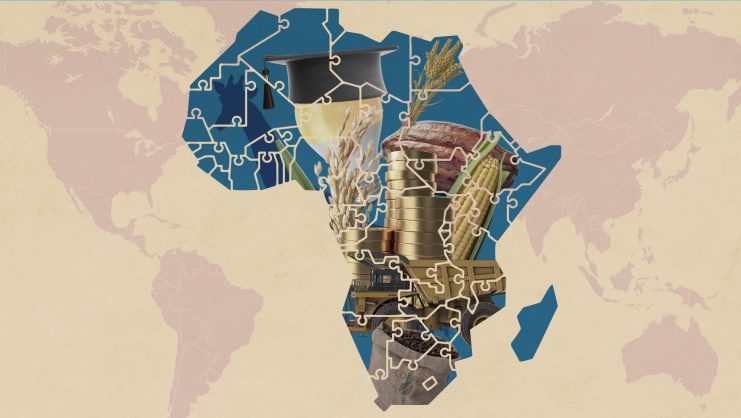Among the biggest companies on the planet, the “Champions League” of the business world, increasingly more innovative companies are setting themselves apart by trying new things. Today’s rankings feature companies that just a few years ago were either not on the radar or didn’t exist at all, and have since become key names. They are the “new winners.” Some say they could comprise over half of the Fortune 500 in the coming years.
These include multinationals from emerging countries that are growing quickly through alliances and acquisitions; companies with new digital business models that are capable of launching products simultaneously in multiple international markets; and organizations that have found ways to leverage social media and build their business by connecting users with similar interests. Only some traditional companies are finding ways to reinvent themselves, adapting their organization and business model to market changes.
In this environment, many leaders are not sure how to go about making the necessary changes. There are a few unforgettable scenes from movies that can help us remember and internalize the “eight commandments” that these new winners seem to be applying with great success.
Managing innovation poses a great challenge when it comes to managing people: how do you get traditional teams—who are responsible for the results and have all the knowledge—to coexist with the new generations of millennials that will build the future?
Innovation, people…
The first commandment is to effectively manage innovation to develop new business models around opportunities that open the digital world or ones nobody was paying attention to. Just think of that hilarious character in Monty Python’s Life of Brian who managed to sell stones for stoning—even though the ground was full of free stones.
The challenge is to manage innovation in traditional organizations that seem to be naturally predisposed to neutralizing it. Imagine making the ludicrous suggestion that a chain of hair salons stop cutting hair. Drybar did exactly that… and has opened more than a hundred stores in the United States and Canada in just seven years. In certain sectors, like media and music, where digital disruption already happened, effectively managing innovation is the difference between winning and losing.
Managing innovation poses a great challenge when it comes to managing people: how do you get traditional teams—who are responsible for the results and have all the knowledge—to coexist with the new generations of millennials that will build the future? I always think of that scene from the movie Invictus, where a larger-than-life Morgan Freeman invites his predecessor’s party to stay when they were already collecting their things, to help him in the transformation he led in South Africa. Organizations like Axel Springer have shown they can reinvent themselves and lead digital disruption in the media, making old and new coexist, by bringing out the best of both worlds.
That goes hand in hand with the search for new ways of working, which implies that many managers must reinvent themselves. And that is never easy. Harrison Ford’s movie Regarding Henry, where the protagonist is incapacitated and has to relearn everything with the help of his daughter, illustrates the situation faced today by the most mature professionals and organizations, who feel like they lack the skills of their younger counterparts. Learning to work without an office, connecting remotely via Slack, or subcontracting a mathematician on the other side of the world through Kaggle may be too much for some people.
In the new digital environment, you have to manage experimentation, where design and execution intermingle, with much more agile and flexible approaches to work.
Policies, processes…
The fourth commandment embodies the infinite flexibility of the protagonist of The Mask. Many companies try to manage the growing complexity of their business by adding more processes and policies, exponentially multiplying their organizational complexity and number of governing bodies. Not only does this not work, it actually kills innovation. Their leaders work more hours than ever and are less productive. In the new digital environment, you have to manage experimentation, where design and execution intermingle, with much more agile and flexible approaches to work. Managers should delegate more and promote much more collaborative behaviors and environments among their specialized professionals.
But managers must go beyond innovating and reinventing themselves. They also need to learn how to execute the strategy much faster than before. Multinationals from emerging countries are growing up to three times faster than traditional firms, not to mention digital companies like Netflix, which have managed to establish themselves in 190 countries in just 10 years. The competition moves at a blistering pace, as if we were living in a permanent competition like The Fast and the Furious. These days, leaders must inspire their teams and be able to mobilize their organizations to execute and adjust plans much faster than before.
Many companies are achieving this growth rate through collaboration agreements and partnerships, developing digital platforms and ecosystems around a common purpose. Organizations like TED and Airbnb have blown up with a very small structure that can grow exponentially with minimal marginal costs. However, as we saw in that wonderful movie Green Card, managing partnerships requires dedication and developing specific skills. Having two or more actors sit at the same table to make decisions and execute plans always complicates things.
Some of the new winners are also acquiring companies to quickly increase their knowledge and competitive advantages. That’s what Tata and Geely have done by successfully acquiring and reviving Jaguar Land Rover and Volvo, in search of talent, prestigious brands and technology. Developing experience takes years, but it can also be bought. Of course, it can’t be managed as an acquisition of winners and losers. You have to be humble enough like Anne Hathaway in The Intern, which is recommendable thanks to film legend Robert de Niro.
Developing experience takes years, but it can also be bought. Of course, it can’t be managed as an acquisition of winners and losers.
Purpose, culture…
Finally, the eighth commandment that is standard among many of the new winners is to have a strong corporate purpose and culture, and to use them as a competitive advantage. Just think about how Cirque du Soleil artists strive to dazzle their patrons with each performance, where the feeling of belonging to the organization is enormous. Believe me: they’re not in it for the money. Purpose and culture are unifying forces, like that of the iconic Star Wars movies, which cannot be imitated by the competition if they are well developed. And this doesn’t happen overnight. It’s a long, risky journey with no looking back, one that requires fully committed leaders.
All these changes are happening at once; in each one, the role of the organization’s leaders is key. The goal is to learn how to compete in a digital global environment with companies that are revolutionizing the market in the blink of an eye.
It’s a complex and urgent challenge. Management is a more exciting job than ever, but many managers are feeling overwhelmed. They don’t know how to become the Jedi Knights of the new digital corporate universe without letting go of the wheel in the Fast and Furious race they’re entrenched in every day. However, today’s competitive environment forces us to relearn the trade and promote transformation in organizations, with a new type of integrative leadership that fuels innovation and competitiveness. We must drive the change if we want to keep competing with the elite players, or risk ending up bewildered in some random hotel, like the ineffable Bill Murray in Lost in Translation, feeling like we missed the train and not understanding why.
© IE Insights.











